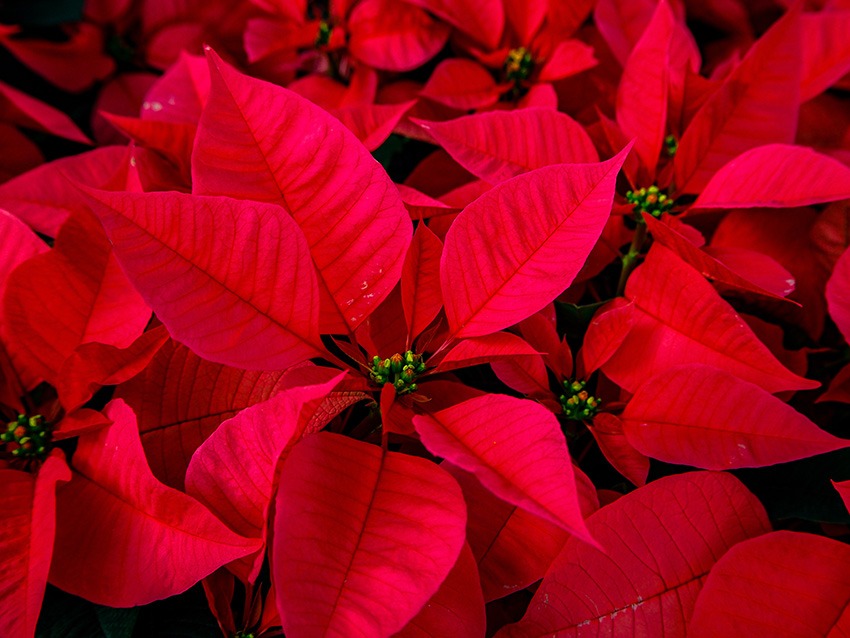
Poinsettias are popularly, though incorrectly, said to be toxic to humans and other animals.
Get more info from the Poison Control Center.
by John Bagnasco
This misconception was spread by a 1919 urban legend of a two-year-old child dying after eating a poinsettia leaf.
In 1944, the plant was included in H. R. Arnold’s book Poisonous Plants of Hawaii on this premise. Though Arnold later admitted that the story was hearsay and that poinsettias were not proven to be poisonous, the plant was still thought deadly. In 1970, the US Food and Drug Administration published a newsletter stating erroneously that “one poinsettia leaf can kill a child”, and in 1980 they were prohibited from nursing homes in a county in North Carolina due to this supposed toxicity.
An attempt to determine a poisonous dose of poinsettia to rats failed, even after reaching experimental doses equivalent to consuming 500 leaves, or nearly 2.2 lb of sap. Contact with any part of the plant by children or pets often has no effect, though itin allergic persons, it may cause nausea, diarrhea, or vomiting if swallowed or exposure to sap. A survey of more than 20,000 calls to the American Association of Poison Control Centers from 1985–1992 related to poinsettia exposure showed no fatalities. In 92.4% of calls, there was no effect from exposure, and in 3.4% of calls there were minor effects, defined as “minimally bothersome”.
Similarly, a cat or dog’s exposure to poinsettias rarely necessitates medical treatment. If ingested, mild drooling or vomiting can occur, or rarely, diarrhea. In rare cases, exposure to the eye may result in eye irritation. Skin exposure to the sap may cause itchiness, redness, or swelling.
